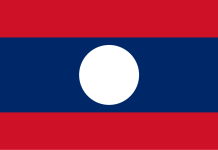According to statistics received from the World Bank’s website, Nigeria is now repaying around $14.12 billion in World Bank loans. The number reflected the amount disbursed on approximately 108 authorized loans.
The oldest debt being serviced was granted in 1989 by Gen. Ibrahim Babangida, while the most current loan being serviced was approved in 2018 by Muhammadu Buhari’s former administration.
The oldest loan is the $100.9 million Multistate Agricultural Development Project (03), which was granted to fund the execution of state-wide Agricultural Development Projects with the goal of enhancing food/crop output and small farmer income.
Although the project’s primary sum was set at $100.9 million, a total of $106.7 million was disbursed. Loans authorized in 2018 were being serviced, disbursing cash, since they were listed under ‘Disbursing & Repaying’.
The $125 million fiscal governance and institutions initiative, authorized on June 27, 2018, was one of these loans. As of the time our correspondent got the data, around $40.17 million had been disbursed under this loan project.
Another loan project that is currently being disbursed and repaid is the $750 million Fiscal Governance and Institutions Project, which was authorized on June 27, 2018.
It was disclosed that $737.13m had been disbursed under this loan. There was an additional $750m loan approved on December 14, 2020, under this loan project. However, this second approval was undergoing disbursement with no repayment required yet.
the $364m loan and the $122m loan approved in 2018 under the Electricity Transmission Project were currently being repaid while disbursement is still ongoing. about 68 loans worth about $4.79bn had been fully repaid over the years.
The International Bank for Reconstruction and Development and the International Development Association, which make up the World Bank, had, over the years, advanced loans to Nigeria.
The IBRD lends to governments of middle-income and creditworthy low-income countries, while the IDA provides concessionary loans – called credits – and grants to governments of the poorest countries.
Nigeria is usually expected to begin servicing a number of the loans after five years of approval and up to over 30 years. Since the loans were usually concessional financing, they were below-market-rate finance, and cheaper to service.
For instance, the $800m loan from the World Bank to provide post-petroleum subsidy palliatives for over 50 million Nigerians attracts a maximum commitment charge rate of one-half of one per cent per annum on the Unwithdrawn Financing Balance, and a service charge of three-fourths of one per cent per annum on the withdrawn credit balance.












